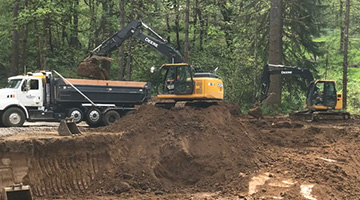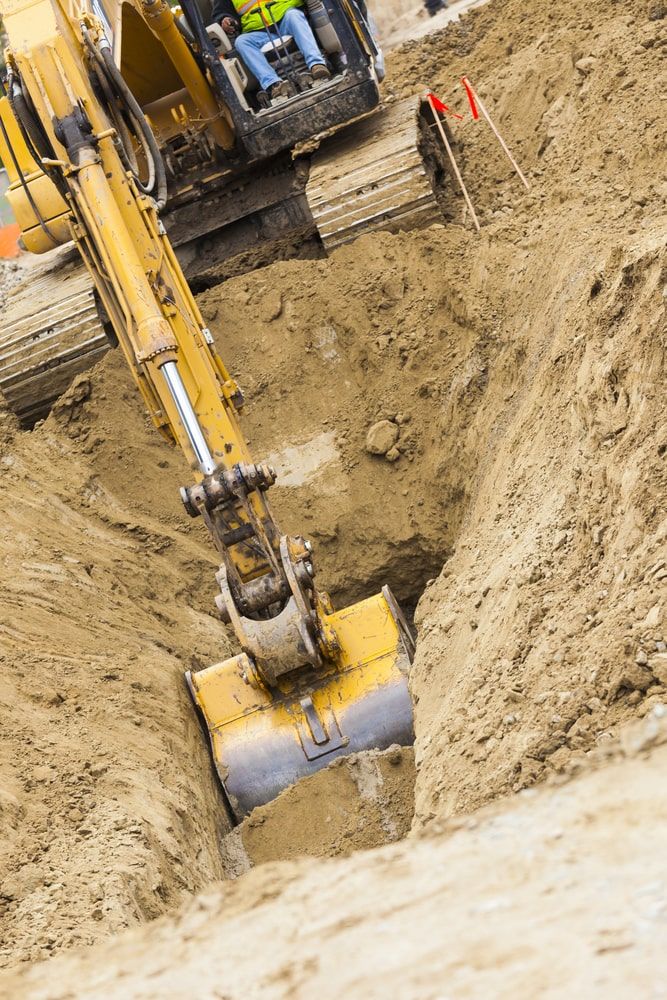Comprehensive Excavation Methods: Grasping the Fundamentals for Success
The careful preparation, accurate execution, and precise focus to detail needed in excavation jobs demand a comprehensive approach that incorporates different fundamental aspects. The real proficiency lies not merely in understanding these fundamentals but in effortlessly incorporating them to browse the intricacies of excavation jobs with finesse.
Understanding Excavation Task Preparation

Effective excavation jobs are built on the structure of complete and precise planning. The preliminary stage of any excavation job is the planning stage, where critical decisions are made that can significantly affect the end result of the project. During this stage, it is necessary to gather all relevant details concerning the site, including topographical studies, soil structure, and any kind of prospective threats that may exist. Recognizing the job timeline, scope, and budget constraints is vital for creating an extensive excavation strategy that ensures the job's success.
One trick element of excavation project preparation is the development of a detailed timeline that outlines the series of deadlines, activities, and milestones. By carefully taking into consideration all these elements throughout the preparation stage, excavation tasks can be performed successfully and efficiently, leading to effective end results - lancaster excavation.
Soil Evaluation and Website Analysis
Performing complete dirt analysis and site examination is an important action in the preparation phase of any type of excavation task. Dirt analysis involves figuring out the structure, framework, and residential or commercial properties of the dirt at the excavation website. This details is essential for comprehending the soil's bearing ability, dampness material, and capacity for erosion, which are crucial variables in determining the excavation methods and tools needed for the task.
Website analysis goes past soil analysis and encompasses a broader assessment of the overall site conditions. This assessment includes determining any possible dangers, such as underground utilities, environmental concerns, or unsteady terrain, that might impact the excavation process. By extensively examining the site, task supervisors can establish efficient excavation methods that focus on safety and security, effectiveness, and environmental management.
Utilizing advanced modern technologies like ground-penetrating radar, dirt sampling, and drone surveys can enhance the accuracy and efficiency of dirt analysis and website analysis. Investing time and resources in these preliminary actions can eventually save time and avoid costly hold-ups or issues during the excavation procedure.
Devices Selection and Application
Effective excavation projects count greatly on calculated tools selection and utilization to make certain ideal performance and performance. Choosing the appropriate devices for the job is crucial in taking full advantage of performance and decreasing downtime. Aspects such as the sort of dirt, deepness of excavation, and job extent play a significant function in establishing the most appropriate tools for the task handy.

Along with picking the ideal tools, correct application is key to project success. Operators must be trained to handle the equipment safely and effectively - excavating ohio. Normal maintenance checks and timely repair services assist stop malfunctions and make sure constant performance throughout the project
Safety Measures and Rules Conformity
In the world of excavation jobs, prioritizing precaution and conformity with policies is paramount to ensuring a legally audio and safe operational environment. Safety actions include a series of techniques, consisting of carrying out extensive website assessments, carrying out appropriate signs and obstacles, and providing ample security training for all personnel entailed in the excavation process. Adherence to laws, such as OSHA demands in the United States, makes certain that the excavation project fulfills the required criteria to secure workers, spectators, and the surrounding environment.
Surveillance Development and Adjusting Techniques
How can predict managers successfully track the advancement of excavation like this jobs and adjust their techniques as necessary to maximize outcomes? Tracking progression is essential for ensuring that excavation jobs remain on track and fulfill deadlines.

Final Thought
To conclude, understanding the fundamentals of comprehensive excavation approaches is vital for the success of any kind of job. By understanding task preparation, examining dirt and site conditions, selecting ideal devices, following security regulations, find more information and keeping an eye on development, job supervisors can make sure a smooth and efficient excavation process. Implementing these strategies will bring about successful results and reduce potential risks or setbacks during the excavation task.
The initial stage of any kind of excavation project is the preparation phase, where vital choices are made that can substantially impact the result of the task. Understanding the job budget, range, and timeline constraints is vital for producing a thorough excavation strategy that guarantees the project's success.
Just how can project managers properly track the development of excavation projects and adjust their techniques appropriately to optimize results? By closely checking progression and being willing to adapt strategies, project supervisors can boost the total success of excavation jobs.
By understanding project planning, assessing dirt and site problems, picking suitable equipment, abiding with security policies, and keeping an eye on progress, project supervisors can guarantee a efficient published here and smooth excavation procedure.